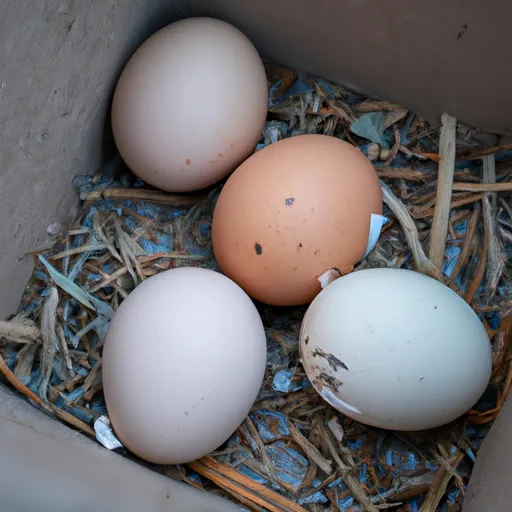White Eggs vs Brown Eggs: Which is Healthier and Why
Have you ever wondered why some eggs are white while others are brown?
Or perhaps, which type of egg is healthier for your body?
In this article, we will explore the differences between white eggs and brown eggs, their nutritional value, and the different types of chickens that lay white eggs.
How to tell if an egg is fresh, cooking with white eggs, and finally, conclude on which type of egg is best for you.
Introduction to White Eggs vs. Brown Eggs
Eggs are a staple food in many households around the world.
They are versatile, easy to prepare, and packed full of essential vitamins and minerals.
However, not all eggs are created equal.
The color of an egg’s shell can vary from white to light brown or even dark brown.
But what does it mean when it comes to its taste, texture, and most importantly, its nutrition?
The Nutritional Value of White and Brown Eggs
When it comes to comparing the nutritional value of white eggs versus brown eggs, there isn’t much difference.
Both types of eggs contain similar amounts of protein, calories, and other essential nutrients like vitamin D and omega-3 fatty acids.
However, some studies suggest that brown eggs may have slightly higher levels of iron and calcium than white eggs.

This could be due to the breed of chicken that lays them, as well as their diet.
Exploring the Different Types of Chickens that Lay White Eggs
There are several breeds of chickens that lay white eggs.
See also How To Look After Chickens - Is It Hard?
Some popular ones include:
- Leghorns
- Anconas
- Andalusians
These birds are known for their slender build, high energy levels, and ability to produce large numbers of eggs each year.
While these breeds tend to be more productive than those that lay brown eggs, they also require specific care and attention to ensure optimal egg production.
How to Tell if an Egg is Fresh (White or Brown)
Regardless of whether you prefer white eggs or brown eggs, it’s crucial to make sure they are fresh before using them in any recipe.
One way to check an egg’s freshness is by cracking it open and examining the egg white and yolk.
A fresh egg will have thick, gel-like egg whites that don’t spread out quickly when you crack them. If the egg whites are thin and runny, then the egg is no longer fresh.
You should also check for any strange odors or discoloration inside the egg.
Cooking with White Eggs: Tips and Recipes
One of the great things about white eggs is that they work well in almost any dish.
Whether you’re making scrambled eggs, and omelets, or baking cakes and cookies, white eggs are a versatile ingredient that won’t alter the flavor or texture of your food too much.
Here are a few tips for cooking with white eggs:
1. Use fresh eggs – As mentioned earlier, fresh eggs are essential for good results when cooking. Make sure to use eggs that are no more than a week old.
2. Crack carefully – When cracking eggs, try to break only the shell and not the membrane inside. This helps prevent bits of shell from getting into your food.
See also Farmers Breed Chickens with Colorful Eggs! | Maryland Farm & Harvest
3. Whisk gently – When whisking eggs, do so gently to avoid creating too many air
pockets. Too many air pockets can cause your eggs to become overcooked and dry.
4. Cook at low heat – Heat destroys proteins in eggs, causing them to coagulate and harden. By cooking at lower temperatures, you can help preserve the structure of the eggs and create creamy textures.
5. Don’t overcook – Overcooking eggs can lead to tough, rubbery textures and unpleasant flavors. Always remove eggs from heat before they reach the desired level of doneness to prevent overcooking.
6. Try new recipes – There are countless ways to use white eggs. Experiment with new recipes and techniques to discover new favorite dishes.
Which Type of Egg is Best for You
Both white eggs and brown eggs offer excellent nutrition and can be used interchangeably in most recipes.
Ultimately, the choice between the two comes down to personal preference and availability.
If you’re looking for something unique, consider trying duck eggs or quail eggs, which have distinct flavors and textures compared to chicken eggs.
Remember to always choose fresh, high-quality eggs and experiment with new recipes to get the most out of your culinary experiences.
